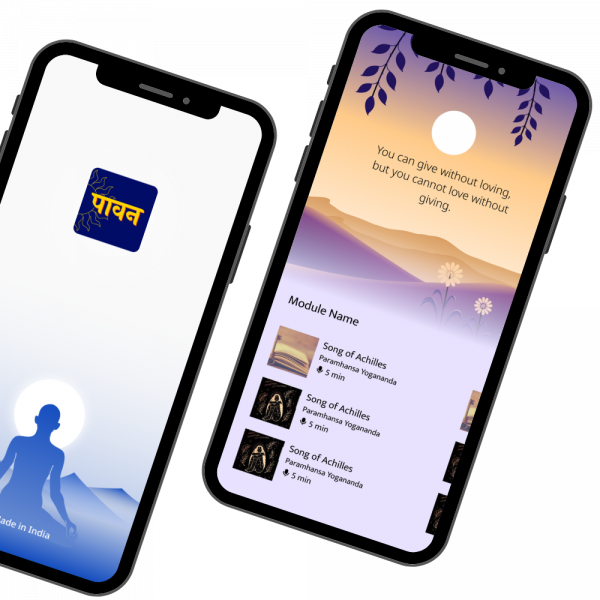What Is Brain Fog?
Brain fog is a term used to describe the experience of having difficulty focusing and processing information in a manner that is clear and concise. It’s also used to describe feeling “foggy” or “fuzzy” mentally, making it challenging to think through problems, remember things, and make decisions.
Most people experience some brain fog from time to time as they age. But for some people, brain fog becomes a more persistent condition that interferes with their ability to think clearly and remember things. Later in this article, we are going to round up the most prevalent brain fog symptoms and causes and how to cure brain fog.
Why Does The Head Feel Heavy?
Why my head feels heavy?… The answer is that you are tired.
Tiredness is a major cause of the feeling of head weight. When we are tired, our heads feel heavy because our brains have to work harder to process information and make decisions. The more tired we are, the more complex these tasks become.
A common symptom of fatigue is difficulty concentrating, which can be experienced through mental wandering or the inability to stay on task in any activity. We also may experience symptoms such as headaches, irritability and fatigue that can persist even when we’re not physically tired. Next, we have brain fog symptoms and causes.
You will also ❤️ these:
Best Ayurvedic Medicine for Anxiety to Live a Peaceful Life
How To Overcome Procrastination When You Have No Time
Common Brain Fog Symptoms
Wondering what are the brain fog symptoms and causes? Let’s explore brain fog symptoms first:
When you have brain fog, you may experience a lack of focus, difficulty with memory and learning new things, fatigue, and moodiness.
Brain fog is a common issue that many people struggle with. Feeling like you need to get better at your work can be frustrating. But there are ways to deal with it—and even improve your brain function!
Here Are Five Common Symptoms of Brain Fog:
1. Difficulty Concentrating or Focusing
You might find yourself easily distracted by the latest news or social media posts and need to remember what’s essential in your life. You may also find yourself quickly bored or needing help with focusing on tasks that require attention over a long period.
2. Difficulty Remembering New Information
When you have brain fog, it can be difficult to stay on top of all the new information coming your way—especially when you’re trying to get ready for work in the morning! Without proper sleep, nutrition, exercise and mental clarity (which includes stress management), you could struggle with poor memory retention throughout the day. This means forgetting to do simple things like paying bills on time or remembering details about people’s names after meeting them once or twice!
3. Fatigue
Fatigue is a common symptom of brain fog. The word “fatigue” has two different meanings in the English language. We use it to describe physical fatigue, the body’s inability to perform at its usual level. But we also use the word to describe a state of mental exhaustion, where the mind feels like it’s on overload and can’t keep up with everything that’s going on around us. Fatigue, as a symptom of brain fog, is often caused by stress or lack of sleep, but it’s also a sign that your body needs more rest than usual. Fatigue can affect your concentration and memory, leading to decreased productivity and increased errors in judgment.
4. Low Energy levels
When you’re feeling fatigued, it can be hard to get through your day without getting distracted from what you need to do. You might fall asleep at your desk or take naps during the day because you don’t have enough energy for anything else! When this happens regularly, it’s time for a change in lifestyle — including taking better care of yourself by getting more sleep each night and eating healthy food throughout the day.
5. Difficulty Sleeping at Night
Another common symptom is difficulty sleeping at night due to brain fog issues. When you’re stressed and can’t sleep, it’s not just because you’re tired or worried about something. It could be that your brain is telling you that it needs more rest, and if you don’t shut down for the night, it will keep on telling you until you get some shut-eye. Not getting enough sleep can greatly impact your overall well-being, so it’s important to address this issue as soon as possible, even if it takes a couple of extra hours to catch up on sleep.
Addition Note:-
Brain Fog Test: A brain fog test can determine if you have brain fog. It typically involves taking a few cognitive tests, such as the Mini-Mental State Examination (MMSE) and the Wechsler Adult Intelligence Scale-Revised (WAIS-R). The results can help determine if you have normal brain function or if your brain fog symptoms are due to other causes. Talk to your doctor about getting tested if you have a cognitive disorder. Consider seeing a specialist specializing in diagnosing and treating these conditions.
What Causes Brain Fog?
Many different things can cause brain fog. It is not always a medical condition, but it may be caused by the following:
Alcohol Consumption:
Alcohol is a depressant, which means it slows down brain activity. This can cause you to feel sleepy and tired when you’re not drinking, making it hard to focus on tasks or tasks requiring concentration. In addition, alcohol can cause dehydration and make you more susceptible to headaches, nausea and vomiting.
Stress:
Stress is one of the leading causes of brain fog. Stress causes your brain to release cortisol, which triggers inflammation and can lead to poor circulation throughout the body. Inflammation damages blood vessels and nerve cells, causing inflammation throughout the body — including your brain. Chronic inflammation can result in many symptoms, including depression, anxiety, fatigue and irritability.
Tobacco Use:
Tobacco use has been linked with cognitive impairment due to its effects on the central nervous system, specifically on the hippocampus region of the brain — which is responsible for memory formation. Smoking cigarettes has also been found to decrease levels of brain-derived neurotrophic factor (BDNF), which supports neural growth and repair during infancy through adulthood.
Depression:
Depression is one of the most common heavy-headed causes. Depression can be a serious health condition, but it can also cause problems with thinking and concentration. When you’re feeling depressed, it’s hard to focus on anything because your mind is constantly racing and trying to figure out why you’re feeling this way. This can result in brain fog.
Sleep Deprivation:
Sleep deprivation is another major cause of brain fog. Not getting enough sleep can affect your memory, concentration, mood and ability to learn new things. If you’re having trouble getting a good night’s rest or if you’re sleeping too much or too little, it could be causing brain fog.
After knowing brain fog symptoms and causes, it is imperative to aware of how to clear brain fog.
Natural Treatment For Brain Fog
Brain fog is the feeling of being mentally and physically drained, lacking focus and motivation. It can make it difficult to think clearly and create a feeling that your brain isn’t working properly. Several factors, including poor diet, stress and lack of sleep, cause brain fog.
Fortunately, many natural treatments for brain fog available can help you get rid of this uncomfortable symptom in just a few weeks.
Here’s how to get rid of brain fog:-
- The first step toward healing from brain fog is getting plenty of sleep each night. Lack of sleep is linked to many health problems, including memory loss and an inability to concentrate.
- Get up 30 minutes earlier each day so you’ll have time to take a warm shower or bath before bedtime. This will help relax your muscles and prepare your body for bedtime restfulness.
- Ensure you’re not drinking caffeinated beverages before bedtime, such as coffee or tea, because they can keep you awake when they should be relaxing you into dreamland (more on this below). Caffeine may also contribute to anxiety disorders like panic attacks or obsessive-compulsive disorder (OCD), which can worsen symptoms if left untreated.
- If you’re a smoker, try quitting as soon as possible; smoking causes brain fog and other health problems, including lung cancer and heart disease. Smoking also contributes to depression and anxiety disorders, which can further exacerbate brain fog symptoms.
- Yoga is a great way to reduce stress and improve your mental health. It improves sleep, boosts your immune system and reduces anxiety. Yoga also has a powerful effect on the brain. Yoga helps you relax and be present at the moment, which can significantly benefit your mental health. It keeps you focused on what’s happening inside your body — not just physically but mentally.
If you’re experiencing symptoms like these, know you’re not alone. Tens of millions of people are estimated to suffer from some degree of brain fog symptoms daily. So, make sure you don’t become one of the many who suffer in silence—reach out for help instead. You deserve a normal life, a sharp mind and the ability to communicate clearly with those around you. And there are strategies and treatments available to help you achieve this. So why not take action today?
Frequently Asked Questions
Question 1. How Long Does Brain Fog Last?
Fog can last anywhere from a few days to a few weeks. If you have brain fog for a more extended period, it’s likely because your body is still recovering from the damage that has occurred. The good news is that this recovery period will be shorter with each passing day, so you’ll experience less and less brain fog as time goes on.






